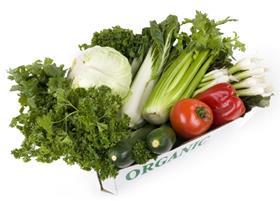
Organic farming is much more productive than previously thought, according to a new analysis of agricultural studies.
The research - which involved reanalysing data collected in 115 previous studies comparing organic and conventional agriculture - claims to show that organic yields were only 19.2 per cent lower, on average, than those from conventional crops, and that this gap could be reduced to just eight per cent if the pesticide-free crops were rotated more frequently.
Furthermore, the researchers from the University of California, Berkeley, found, in some crops - especially leguminous plants such as beans, peas and lentils - there were no significant differences in yields.
Claire Kremen, professor of environmental science, policy and management at Berkeley, said: “In terms of comparing productivity among the two techniques, this paper sets the record straight on the comparison between organic and conventional agriculture.
“With global food needs predicted to greatly increase in the next 50 years, it’s critical to look more closely at organic farming because, aside from the environmental impacts of industrial agriculture, the ability of synthetic fertilizers to increase crop yields has been declining.'
Speaking about the new study, Helen Browning, chief executive of the UK's Soil Association, said: 'This report is a very helpful contribution to showing that organic farming can meet the challenge of feeding a growing world population healthily and with a much lower impact on our environment.
'We welcome the conclusion from researchers that organic farming is a very competitive alternative to industrial agriculture when it comes to food production. With more research and development, as we are doing through our Duchy Originals Future Farming programme, we can clearly close the gap still further.
'Of course, we still need to reduce waste, and encourage moderation in meat consumption, alongside a move to organic farming that will nurture our soils, reduce our dependency on fossil fuels, and protect our wildlife.'
The study was published in the journal Royal Society B.



